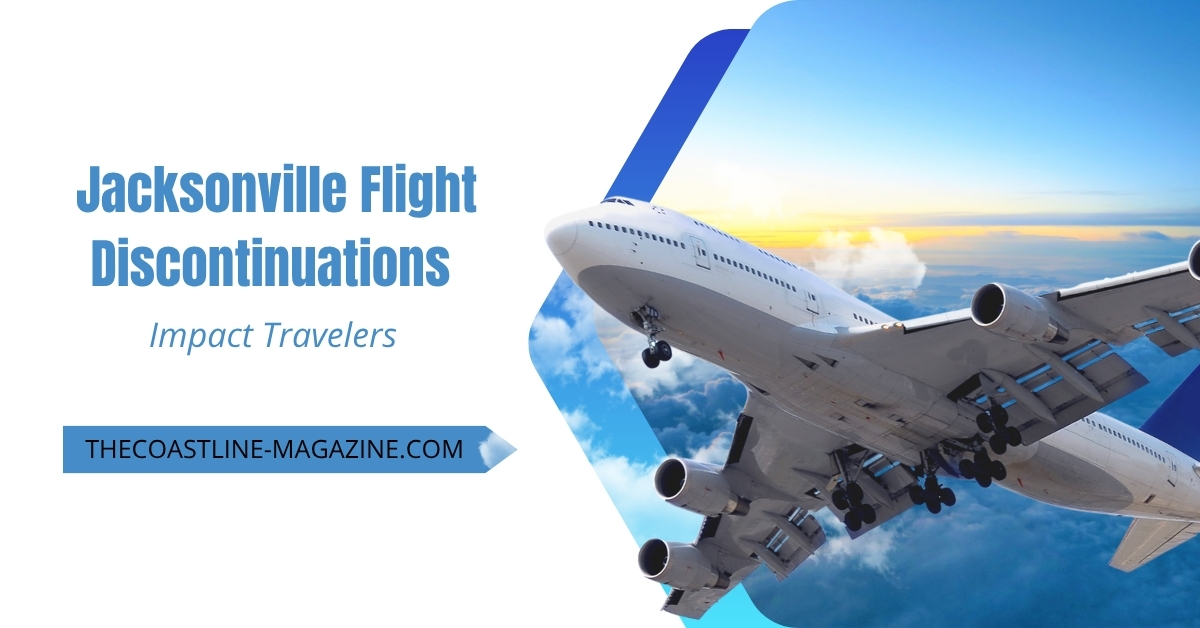Jacksonville International Airport (JAX) has long served as a vital gateway for travelers in Northeast Florida. With its bustling terminals and variety of routes, it has made air travel convenient for both locals and visitors alike. However, recent flight discontinuations have left many passengers feeling stranded and frustrated. As airlines adjust their schedules and routes, the impact on Jacksonville’s travel scene is becoming increasingly palpable. What does this mean for those who rely on JAX to connect them to destinations near and far? Let’s dive into how these changes are shaping the travel experience in Jacksonville.
How discontinuations affect Travelers
Travelers in Jacksonville are feeling the pinch from recent flight discontinuations. Fewer options mean longer drive times to neighboring airports. This can lead to increased travel costs and added stress.
Business travelers, who often rely on direct flights, face significant challenges. They may need to adjust schedules or even change plans altogether when connections become necessary.
Leisure travelers also find their trips impacted. Vacation plans could be delayed as they search for alternative routes or airlines that fit their needs.
The ripple effects extend beyond inconvenience. Families planning reunions or special events now have to navigate limited availability, potentially missing important moments together.
These changes create a more complicated travel landscape for everyone relying on Jacksonville’s airport services.
Reasons for Flight Discontinuations
Recent flight discontinuations in Jacksonville can be attributed to several key factors. One significant reason is airline mergers. When airlines combine, routes may overlap, leading to cutbacks on less profitable flights.
Low demand also plays a critical role. If fewer passengers are booking certain routes, airlines often reassess their schedules and discontinue services that aren’t meeting performance expectations.
Furthermore, operational costs have risen significantly for many carriers. Fuel prices and staffing challenges add pressure to maintain profitability. In response, airlines prioritize high-demand markets over others.
Economic fluctuations impact travel trends as well. During uncertain times, both leisure and business travelers may choose alternative destinations or modes of transport.
Evolving consumer preferences shift the landscape of air travel continuously. As travelers seek convenience and affordability, smaller regional airports like Jacksonville can face tougher competition from larger hubs.
Impact on the Local Economy and Tourism
The recent flight discontinuations at Jacksonville International Airport have raised concerns about the local economy. Fewer flights mean reduced accessibility for travelers, which can lead to declines in tourism revenue.
Local hotels, restaurants, and attractions rely heavily on visitors arriving by air. When flight options dwindle, so does the foot traffic that supports these businesses. This could result in lower sales and potential job cuts as establishments struggle to stay afloat.
Additionally, conventions and events may face challenges when attracting attendees from other regions. With limited travel routes available, organizers might find it harder to secure participation from a broader audience.
As the impact ripples through various sectors of the community, it’s clear that maintaining robust airline connections is vital for sustaining Jacksonville’s economic health and vibrancy in its tourism landscape.
How Travelers can cope with fewer Flight options
With fewer flight options available at Jacksonville’s airport, travelers need to adapt. Flexibility is key. Consider adjusting your travel dates. A slight shift can open up more possibilities.
Explore alternate airports within driving distance. Nearby cities may offer additional routes that could fit your itinerary better.
Be proactive when booking flights. Use fare comparison tools and sign up for alerts on price drops or special deals from airlines.
Additionally, consider alternative modes of transportation for shorter distances. Trains or buses can sometimes be a cost-effective solution if flying isn’t feasible.
Connecting flights might become necessary for some destinations. While this adds time to travel, it increases the chances of finding a suitable route without breaking the bank.
Solutions being implemented by Airport Officials to attract more Flights
Airport officials in Jacksonville are actively pursuing strategies to boost flight availability. They have initiated discussions with major airlines, highlighting the region’s growing demand for travel.
One approach involves offering incentives such as reduced landing fees and marketing support. This makes it more appealing for carriers to consider adding new routes or restoring previous ones.
Additionally, officials are enhancing airport facilities. Upgrades aim to improve the overall traveler experience, drawing attention from both airlines and passengers alike.
Community engagement is also a priority. Local stakeholders are being tapped to voice their needs and preferences regarding air service options, ensuring that any new flights align with traveler expectations.
Moreover, there’s a focus on promoting Jacksonville as an attractive destination through targeted advertising campaigns. By showcasing local attractions and events, they hope to entice more visitors who will support increased flight operations.
Conclusion and future outlook for Jacksonville’s airport and Travelers
The recent Jacksonville Flight Discontinuations at the airport have created a ripple effect for travelers and the local community. As airlines streamline operations or reduce routes due to various reasons, including mergers and fluctuating demand, residents face challenges when seeking air travel options.
For many, fewer flights mean longer layovers and potential increased travel costs. The inconvenience can lead to frustration as families plan vacations or business professionals seek timely connections. While some may adapt by exploring alternative airports nearby, others find adjusting their schedules difficult.
Local businesses will also feel the impact of these changes. A decrease in incoming tourists can affect everything from hotel bookings to restaurant traffic, ultimately affecting jobs and revenue streams in the area. The tourism sector relies heavily on steady flight availability; thus, a drop-in direct flights could dissuade visitors from considering Jacksonville as a destination.
Nevertheless, efforts are underway to address these challenges. Airport officials are actively engaging with airlines to showcase Jacksonville’s unique offerings and its growing population base, factors that could entice carriers back into the market. Enhanced marketing campaigns aimed at promoting regional attractions might further bolster interest from both travelers and airline operators alike.
The outlook for Jacksonville’s airport remains cautiously optimistic as stakeholders work towards revitalizing air service options while supporting both travelers’ needs and local economic growth initiatives. With strategic planning and collaboration among key players in aviation, there is hope that Jacksonville will reclaim its status as an accessible hub for travel enthusiasts looking to explore this vibrant city.

